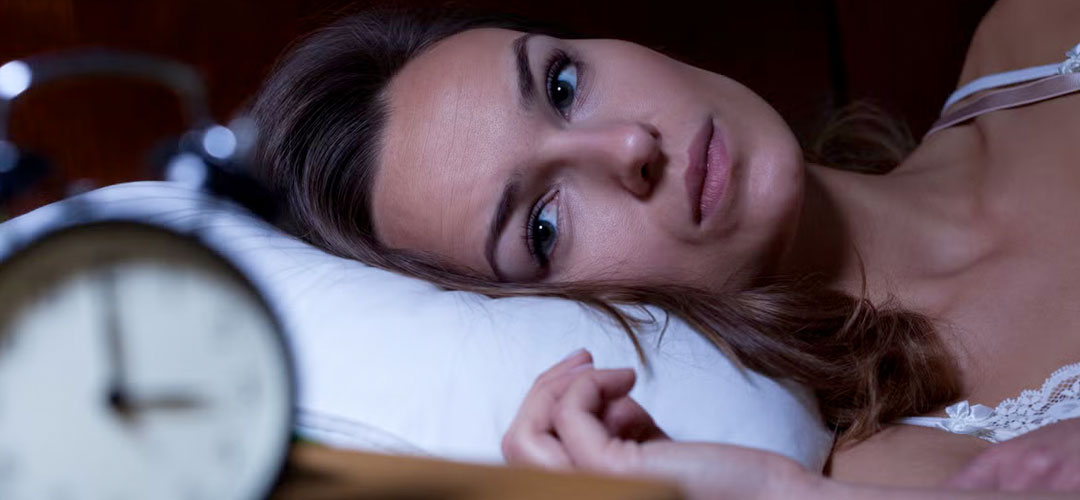
Waking up at 3am is a common issue for many people, and it can be frustrating, especially when it disrupts your sleep cycle.
If you've found yourself repeatedly waking at this specific time, you're not alone. Understanding why this happens and what you can do about it can help improve your sleep quality and overall well-being.
In this blog, we’ll explore some possible reasons why you may be waking up at 3am and offer practical tips for getting back to restful sleep.
Why Do I Keep Waking at 3am?
Waking up at 3am can be caused by a variety of factors, ranging from lifestyle habits to underlying health issues. Here are some of the most common reasons why this might be happening:
1. Disrupted Sleep Cycle (Circadian Rhythm)
Our bodies are naturally wired to follow a circadian rhythm, which is the internal clock that regulates sleep-wake cycles. The circadian rhythm is influenced by factors like light exposure and melatonin levels. If your sleep cycle is disrupted, you may experience frequent awakenings during the night, including at 3am. Stress, inconsistent sleep patterns, or excessive screen time before bed can all contribute to this disruption.
What You Can Do:
- Stick to a consistent sleep schedule, going to bed and waking up at the same time each day.
- Avoid electronic devices at least an hour before bed, as the blue light emitted can interfere with melatonin production.
- Create a calming bedtime routine to signal to your body that it’s time to wind down.
2. Stress and Anxiety
Stress and anxiety are among the most common causes of waking up in the middle of the night. When you’re stressed or anxious, your body produces cortisol, a hormone that can interfere with sleep. This heightened cortisol level may cause you to wake up suddenly, especially at 3am when your sleep is likely entering a lighter stage. Your mind may race with worries, making it difficult to fall back asleep.
What You Can Do:
- Practice relaxation techniques, such as deep breathing, meditation, or progressive muscle relaxation before bed.
- Try journaling to release any worries that may be keeping you awake.
- Limit stimulating activities before bed, like watching intense TV shows or engaging in difficult conversations.
3. Hormonal Imbalances
Hormonal fluctuations, particularly in women, can contribute to waking up during the night. For example, menopause, pregnancy, and PMS can all cause changes in hormones such as oestrogen and progesterone, which can affect sleep patterns. Men, too, can experience hormonal changes, especially related to testosterone levels, which may impact their sleep.
What You Can Do:
- If you suspect hormonal imbalances, consult a healthcare provider for advice or testing.
- Use relaxation techniques to manage the impact of hormonal shifts on your sleep.
- Keep your bedroom cool and dark, as this can help regulate hormone production and support better sleep.
4. Digestive Issues or Eating Habits
Certain foods and beverages can disrupt sleep, especially if consumed too close to bedtime. Heavy meals, spicy foods, alcohol, or caffeine can cause indigestion or stimulate your digestive system, leading to discomfort and awakenings, sometimes at 3am. Conditions like acid reflux (GERD) can also worsen at night, causing you to wake up with a sour taste in your mouth or a feeling of discomfort.
What You Can Do:
- Avoid large meals and spicy or acidic foods at least two to three hours before bed.
- Limit caffeine and alcohol consumption in the evening, as both can disrupt sleep.
- Consider sleeping with your head elevated to help reduce the effects of acid reflux.
5. Sleep Apnoea or Other Sleep Disorders
Sleep apnoea, a condition where your breathing stops and starts during sleep, can cause frequent awakenings during the night, including at 3am. This condition often leads to poor-quality sleep and may be accompanied by snoring, gasping for air, or excessive daytime fatigue. Other sleep disorders, like restless leg syndrome, can also cause disruptions in your sleep cycle.
What You Can Do:
- If you suspect you have sleep apnoea, consult with a healthcare provider for diagnosis and treatment options.
- Use a CPAP machine if recommended by a doctor to help manage sleep apnoea.
- Create a sleep-friendly environment by keeping your bedroom dark, quiet, and cool.
Practical Tips for Sleeping Through the Night
If you’re waking up at 3am regularly, it’s important to address the underlying cause and take steps to improve your sleep quality. Here are some practical tips to help you sleep more soundly through the night:
1. Create a Sleep-Friendly Environment
Your sleep environment plays a crucial role in how well you sleep. Make sure your bedroom is conducive to rest:
- Keep your room cool, quiet, and dark.
- Invest in a comfortable mattress and pillows that support a restful night’s sleep.
- Minimise noise with earplugs or white noise machines if needed.
2. Limit Naps During the Day
Napping can affect your sleep at night, especially if taken too late in the afternoon. If you need to nap, try to limit it to 20-30 minutes earlier in the day to avoid disrupting your circadian rhythm.
3. Try Herbal Supplements
Certain herbal supplements, such as chamomile tea, valerian root, or melatonin, are often used to promote relaxation and improve sleep quality. Before using any supplement, it’s important to consult with a healthcare provider to ensure it’s safe for you, especially if you’re already taking medications.
4. Seek Professional Help if Needed
If you’ve tried lifestyle changes and sleep aids but still find yourself waking at 3am, it may be time to seek professional help. A sleep specialist can help identify underlying issues, such as sleep disorders, and provide treatment options tailored to your needs.
Conclusion
Waking up at 3am can be disruptive, but understanding the root causes and implementing practical solutions can help you sleep more soundly through the night. Whether it’s stress, hormonal imbalances, digestive issues, or another factor, identifying the cause of your sleep disturbances is the first step in improving your sleep. By making adjustments to your sleep routine, environment, and lifestyle, you can reduce the likelihood of waking up in the middle of the night and enjoy better overall health and well-being.
Disclaimer:
Information and other content provided in Lily & Loaf blogs should not be construed as medical advice and should not be considered a substitute for professional medical expertise. If you have any medical concerns, you should consult with your health care provider.






